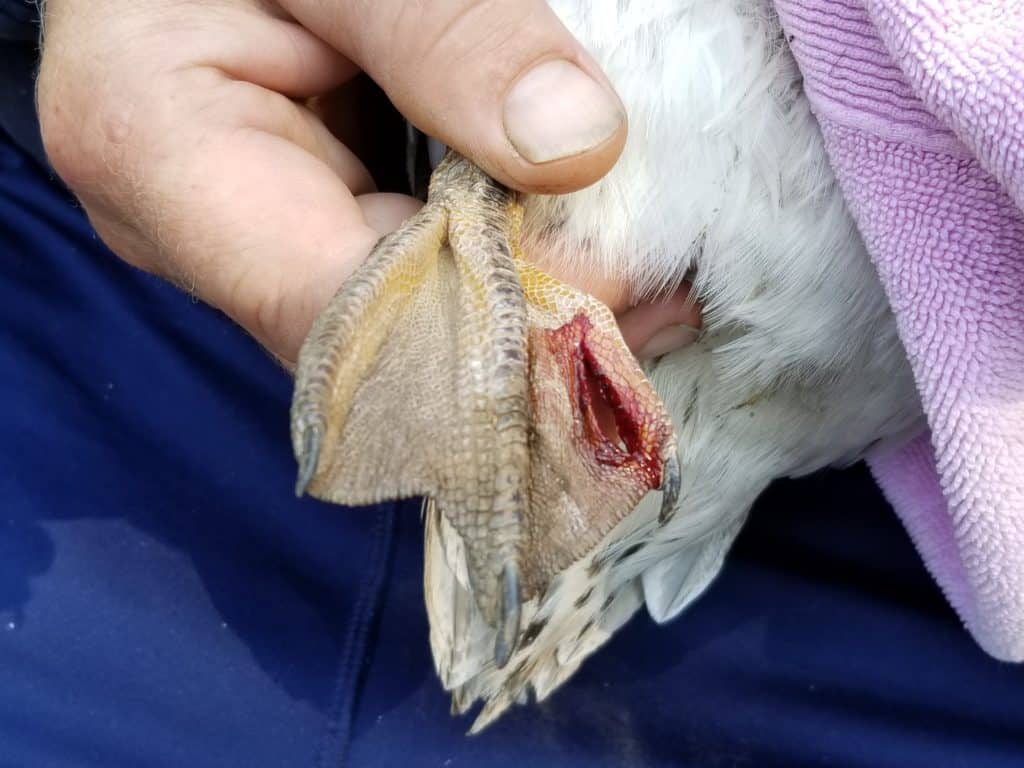Remove chicken’s comb….really? Did you ever think you’d be asking, or googling, maybe phone friend, OR private messaging your favorite chicken keeper with that question?!
Well, leave it to us, if anything is going to happen in this magnitude it’s going to happen to us. And of course with my all time favorite hen, Buffette – our surviving hen of coccidiosis.
I can’t tell you how she tore her comb, but I can take a pretty educated guess. We had put up extra metal poultry fencing around the tractor trailer in order to keep her and the guinea keet she hatched in, trying to protect them from the other birds in our chicken area. I am assuming she had put her head through the fencing in order to protect her keet and then pulled her head back in, tearing her comb.
I just want it noted that I have one of the most kind hearted husband you will ever come across. He is generally tough, but when one of the animal’s becomes ill or injured he does everything he can to help nurse them back to health.
With this occurrence he came in with strick instructions to our children that there’s a lot of blood on one of the hens, but this is part of our life, and we need to be strong and calm in order to keep our Buffette strong and calm. Her comb was torn so bad that it was dangling in front of her eyes, the blood was still slightly flowing, but a majority of the it had begun crusting around the feathers on her head. The sight was not for individuals with a weak stomach or for indecisive chicken keepers; helping her through the shock required us to treat her quickly and efficiently.

Backyard chicken keepers would not generally need to remove a comb. It has a purpose and leaving it in tack is the best option chicken. The comb helps to determine the health of a bird, indicates sexual maturity, sexual appeal for mating, and it regulates cooling. Combs are a mass of meaty flesh with blood vessels running to it, so even the slightest injury can bring quite a bit of blood.

With the minor bit of info I had on combs & waddles, along with our well supplied Poultry Medical Kit, we took care of business and fixed her right up.
We grabbed our strongest and sharpest kitchen shears and washed them (we also wiped down her comb where we would be cutting) with Betadine.
I then took a deep breath and snipped off the tore comb as close as I could to where it was still attached. It was thick, the comb was thick, and for some reason that surprised me. It felt like cutting I was cutting through flesh, and I was shocked that she didn’t flinch…she did not struggle, did not put up a fight, she did not move, she was perfectly still. Once the procedure was done I realized I had been holding my breath so, I exhaled – a loud, hard exhale.
We used Vetericyn gel as an antibiotic treatment to treat the area.
We monitored the area where the comb was torn for a week, cleaning it with the Vetericyn gel every few days. Since she was still with her guinea keet in the tractor there was no need to protect the injured area from being pecked at by the other hens. Her recovery was amazing and there were no complications. We will monitor her closely during the warmer months in order to make sure she is able to monitor her body temperature, but do not foresee any issues considering she had a very small comb to begin with.










